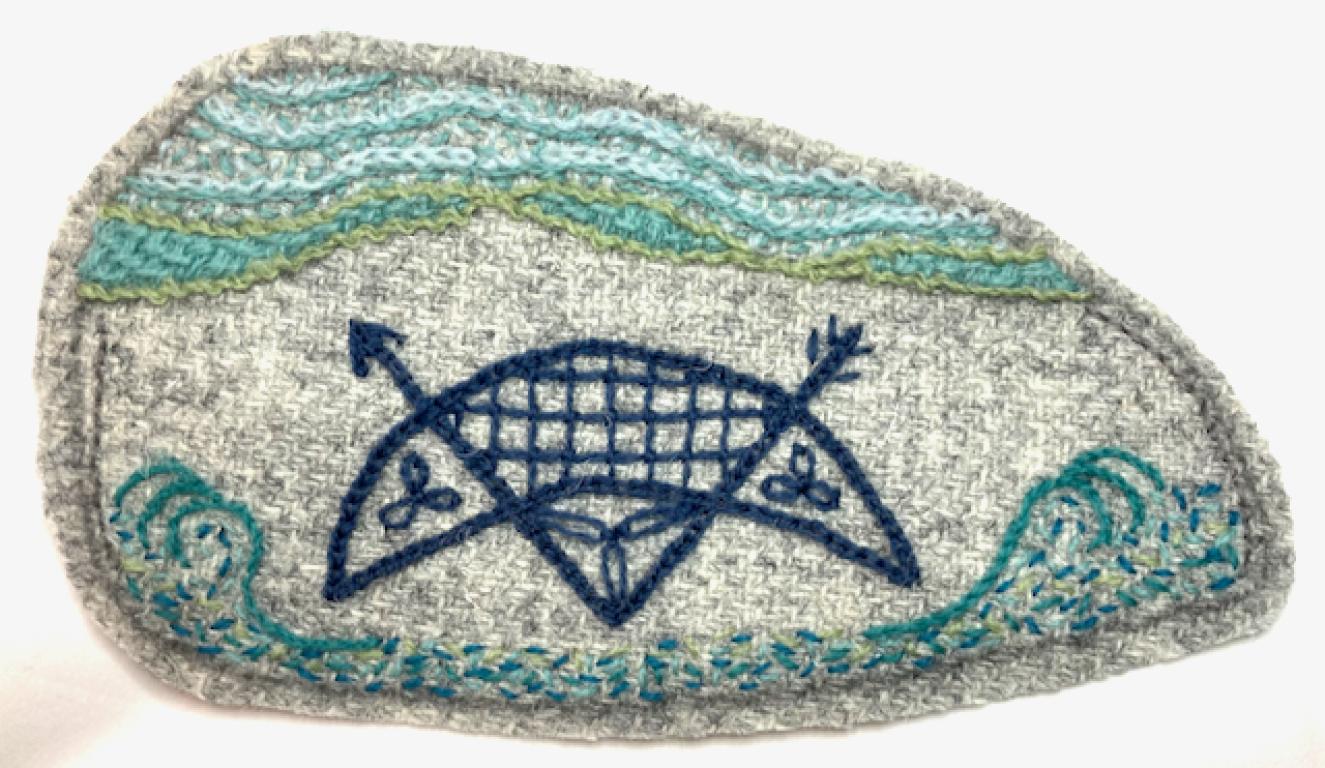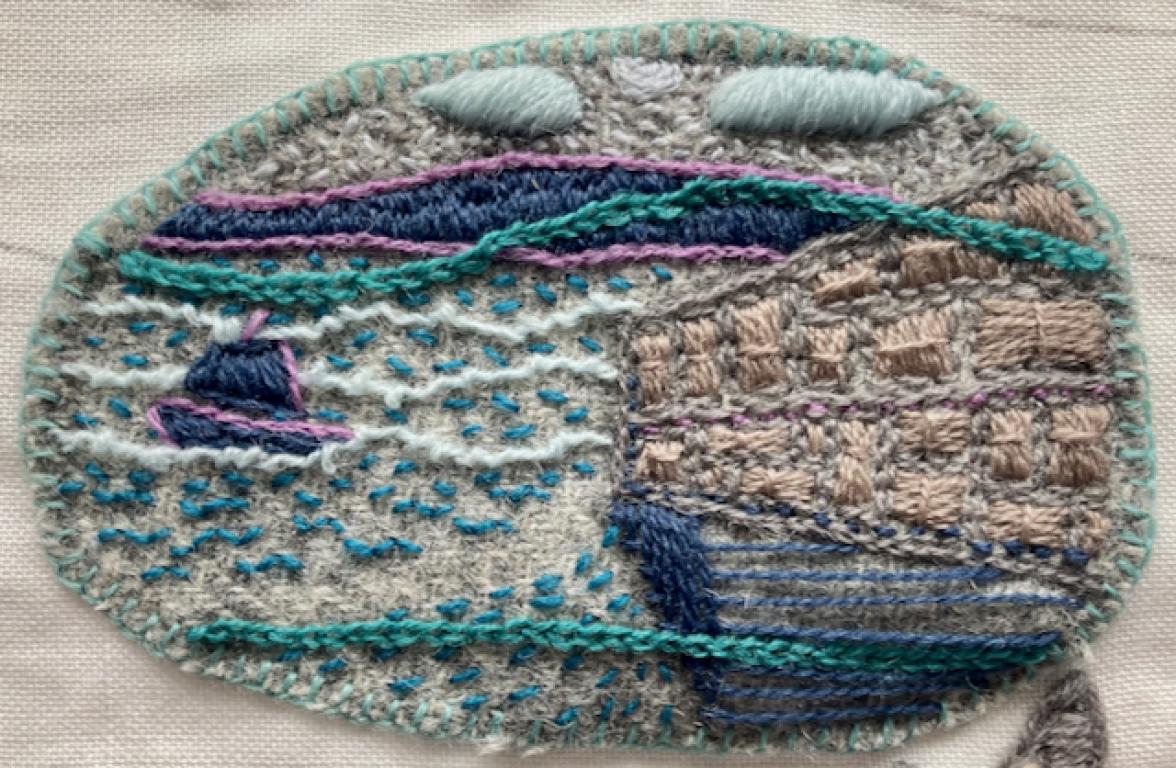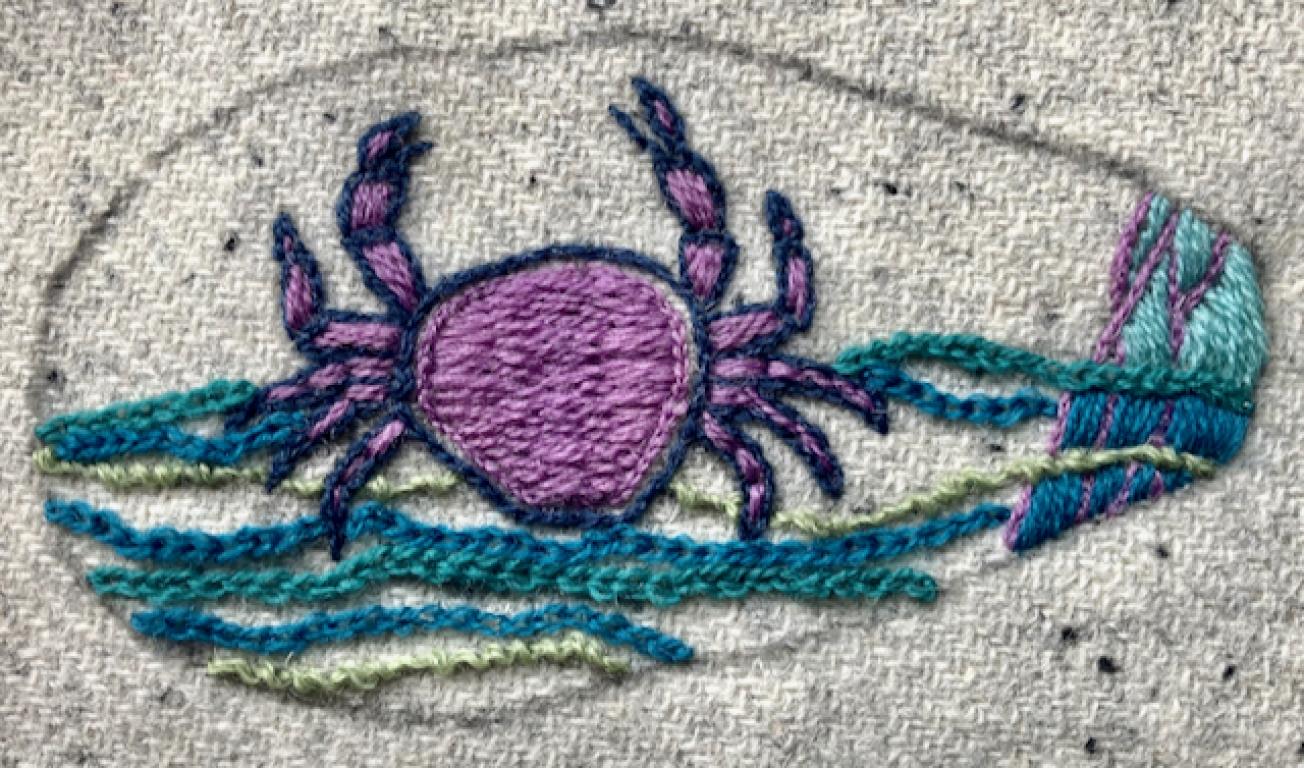
All Along the Strandline, the Picts Kept the View
By Corrina Thomson
 A tribute to the legacy of the Picts
A tribute to the legacy of the PictsImage provided by Corrina Thomson
 Journey Stone remembering the tragedy of the 1809 Meikle Ferry Disaster
Journey Stone remembering the tragedy of the 1809 Meikle Ferry DisasterImage provided by Corrina Thomson
 Journey Stone depicting a wee crab along the Dornoch shoreline
Journey Stone depicting a wee crab along the Dornoch shorelineImage provided by Corrina Thomson
These journey stones were created for the Two Firths Stitchers Tapestry of the Highlands and Islands panel, Gizzen Briggs, and are part of my own journey back into sewing after a twenty-plus-year hiatus after learning to sew at school in Thurso in the 1980s.
Taking the Shandwick stone and other Pictish stones as a source of inspiration, my first journey stone shows the Pictish crescent and V-rod, embroidered in locally spun yarn on tweed. The importance of the Picts in the Highlands cannot be underestimated and nor can their carvings, which are amazing to see and a challenge to redraw.
My second stone is a tribute to the Meikle Ferry disaster. In 1809, on a clear day, 99 people died when an overloaded ferry capsized. My stone shows the Meikle slipway with the southern shore in the distance.
The third stone is a celebration of seashore life around the Dornoch firth, in the form of a wee crab.
Many thanks to Corrina Thomson for sharing with us the story behind her journey stone, created as part of the Tapestry of the Highlands and Islands.
WHAT IS A JOURNEY STONE?
Prior to the beginning of the stitching of each tapestry panel, each stitcher of the Tapestry of the Highlands and Islands was tasked with telling their interpretation of the 'Spirit of the Highlands and Islands' within a blank outline of a stone. The possibilities were truly endless - is it represented in the land? The people? A historical site? A favourite memory?
In any case, each journey stone represents the connection between each individual stitcher, their story, and their own sense, or 'spirit', of place. Discover more of the stories behind the journey stones of the Tapestry of the Highlands and Islands here.